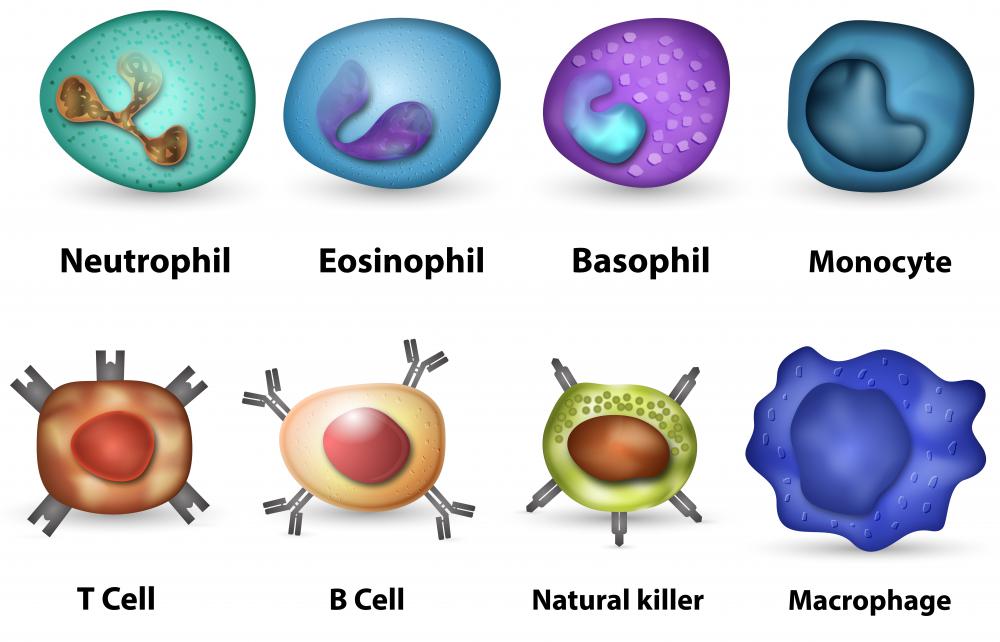At WiseGEEK, we're committed to delivering accurate, trustworthy information. Our expert-authored content is rigorously fact-checked and sourced from credible authorities. Discover how we uphold the highest standards in providing you with reliable knowledge.
What is Leishmaniasis?
Leishmaniasis is a disease caused by parasites belonging to the genus Leishmania. Leishmaniasis affects the skin, mucous membranes, and internal organs. Leishmaniasis is also called sandfly disease, Dum-Dum fever, espundia, and kala azar, which is Hindi for “black fever.” It is relatively unknown in the developed world but affects many poor countries.
Leishmaniasis is caused by the parasitic Leishmania protozoa. These parasites are carried by the blood-sucking sandfly. Once the parasites are transmitted to humans or animals through a sandfly bite, the host’s immune system attempts to consume the protozoa with immune cells called macrophages. Usually this defeats infection, but the Leishmania protozoa are capable of surviving and multiplying within the macrophages. Ultimately, these macrophages burst open, releasing the protozoa and allowing them to take over neighboring cells.
The course leishmaniasis takes after this initial infection depends on the specific type of protozoa and on the reaction it elicits from the host’s immune system. There are over twenty varieties of Leishmania that can infect humans.

There are four main forms of leishmaniasis. Localized cutaneous leishmaniasis is characterized by an itchy lesion on an arm or leg or the face, and possibly swollen lymph nodes in the same area. Over a period of months, the sore will develop a red raised edge and a central crater. It may heal on its own, or invade and destroy surrounding tissue. Diffuse cutaneous leishmaniasis is similar, except the lesions spread all over the body and resemble leprosy.

Microcutaneous leishmaniasis begins with the type of sores that indicate localized cutaneous leishmaniasis, but years after those lesions heal, new ones appear in the mouth and nose, or occasionally near the genitals. The new sores are painful, erode underlying tissue, and are vulnerable to bacterial infection. Other symptoms include fever, weight loss, and anemia.

Visceral leishmaniasis is the most serious form of the disease. Lesions appear on the skin and the skin takes on a grayish hue. Protozoa travel through the bloodstream to the liver, spleen, lymph nodes and bone marrow. Weakness, diarrhea, and weight loss are common.
Leishmaniasis is treatable, but existing medicines are costly. The most common is a course of injections of sodium stibogluconate or meglumine antimoniate. Less expensive oral medications, as well as potential vaccines, are in the development stages.

Leishmaniasis primarily affects poor communities in isolated areas, where it is prone to epidemics. It is present in approximately 88 countries ranging from Central and South America to West Asia; however, more than 90 percent of cases of visceral leishmaniasis are in Bangladesh, Brazil, India, Nepal, and Sudan. In Sudan, one epidemic lasted from 1984 to 1994 and claimed over 100,000 lives.
AS FEATURED ON:
AS FEATURED ON:

















Discussion Comments
of course they could. The only thing is the microorganisms can find the ideal place to grow up. that could be any place or any tissue culture such as human, dog, cat etc. Tead the instructions about medical treatment and protet yourself immediately. --Dr. M. Veral
There has recently been a risen number of Leishmaniasis cases in dogs where I live - would you think that this strain is host specific to dogs as I believe cats don't suffer - or could humans be affected?
Post your comments